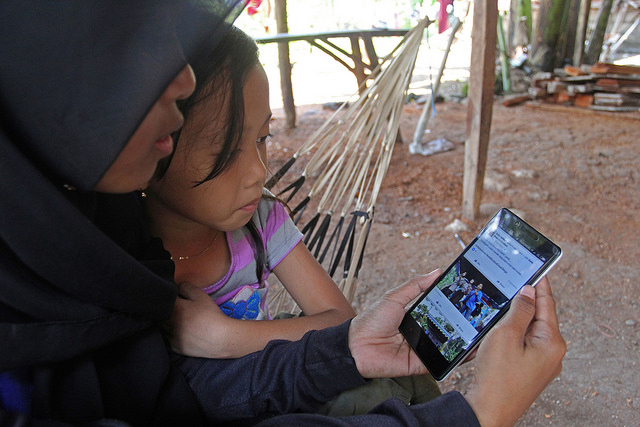
This piece is written by Open Data Lab Jakarta’s Lab Manager, Antya Widita. Follow him on Twitter at @AntyaWidita for more.
Corruption is brutal – its impact harms society economically, politically, and even environmentally. The current President of Indonesia, Joko Widodo, calls corruption an “extraordinary crime that requires extraordinary measures”.
Eye-opening events on tackling corruption
Open data can be a powerful tool for anti-corruption. Initiatives around the world have shown that open data can be used to hold governments accountable, foster transparency and drive meaningful citizen engagement to monitor government actions, thereby shrinking the space for corrupt practices. Our Jakarta Lab has been working on such initiatives with local partners in Indonesia and elsewhere in the region, since 2014.
Recently, we spoke at two international events, sharing our experiences, lessons learned, and evidence of how open data can benefit society by combating corruption.
The first event, “Advancing Transparency and Anti-Corruption Movement in the Governance of Asia’s Natural Resources“, provided a rare opportunity for civil society groups and journalists to share their experiences and look for ways to collaborate on anti-corruption. We presented tools that we’ve developed to promote government and civil society collaboration and for creating an environment for successful bottom-up processes to open up government data.
We also spoke at the global conference on “Opening up Ownership”, hosted by the Government of Indonesia and the Extractive Industry Transparency Initiative (EITI). This event convened representatives from more than 45 countries to renew their commitments to extractive transparency and to discuss practical steps needed to reveal the real owners of companies – sometimes referred to as “beneficial owners” – with a focus on the energy and mining industries.
In 2016, EITI’s 52 member countries agreed to adopt new rules on disclosing beneficial ownership of companies that apply for an exploration or production – of oil, gas or mining – license or contract. These required companies to disclose details of their beneficial owner and identify any politically-exposed persons to avoid any conflicts of interest. We presented and explained the available standards, guidelines and best practices we use to open up government data, things we see as vital to ensure this data is fit for purpose and can be used meaningfully by citizens.
Our key takeaways from the two events:
- Passing laws on opening government data is only the first step. Governments must also ensure that the law is well-understood and implemented, from comprehensive data collection, to monitoring and evaluation of the process, and tracking meaningful uses of published data.
- Establishing open data systems and practices requires sufficient capacity from data publishers and users. Governments must embrace the opportunity to tap into outside expertise, consider capacity development within, and promote learning and sharing of best practices with other countries.
- EITI member country representatives look for initial quick wins from open data initiatives to build trust with citizens. These impacts can show citizens that the government is walking the talk when it comes transparency and accountability, and can help maintain momentum of the government’s work to fight corruption.
- We must find ways to bridge the divide between the private sector and civil society groups. There was a lack of participation from the private sector, particularly in the first event. The bulk of participants were government officials and civil society groups. However, those private sector representatives who were there, particularly from the financial sector, showed interest in the potential of open beneficial ownership data to fight corruption.
Open data to fight corruption
The progress to publish data for anti-corruption has been discouraging, as shown by our recent research. Five key G20 countries – including Indonesia – have failed to meet their commitments to tackle corruption through the publication of key anti-corruption datasets, which would allow citizens to better monitor the flow of government funds, allocation of public resources, procurement activities and trace the financial sources of political campaigns.
While open data shows much promise, it is still early days and governments must fulfil their commitments to open up data and invest in skills and initiatives if we’re to seriously tackle global corruption.
At the Jakarta Lab, we are committed to our work in designing, starting and promoting initiatives to increase the knowledge, use and progressive impact of open data. Find out more about our activities and read our timeline at work, visit our project pages, check out our blog, or follow us on Twitter @ODLabJkt.
Leave a Reply